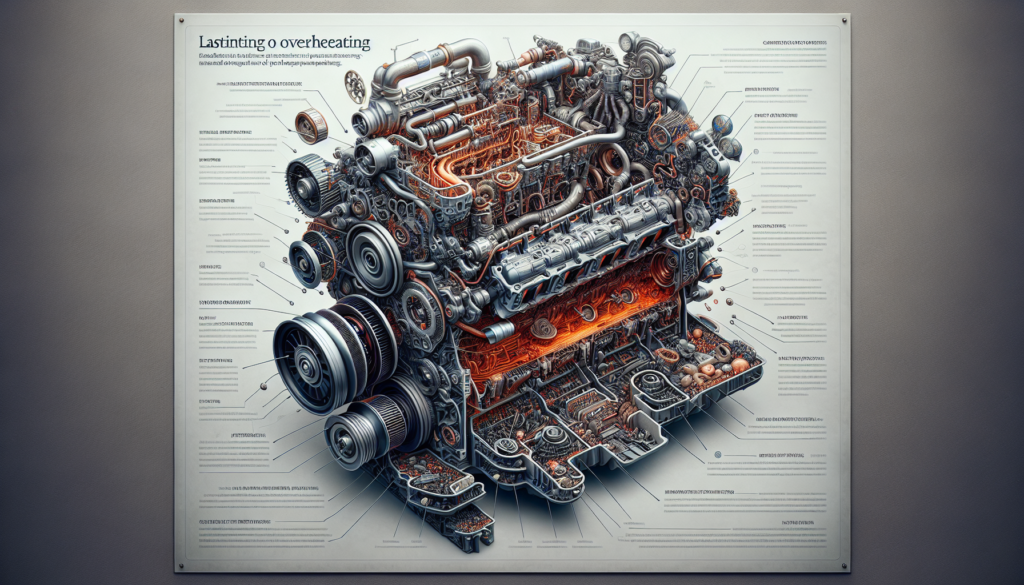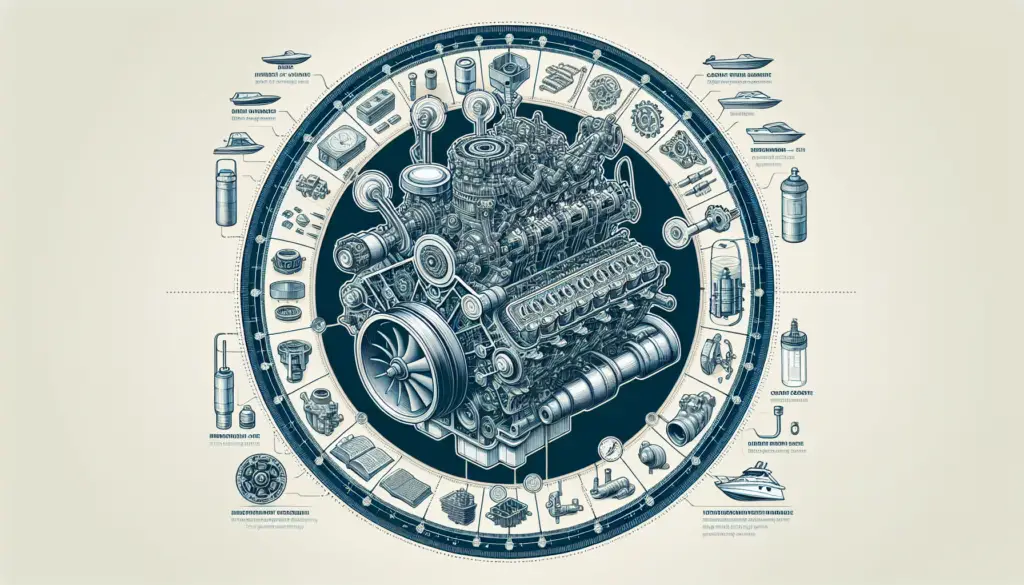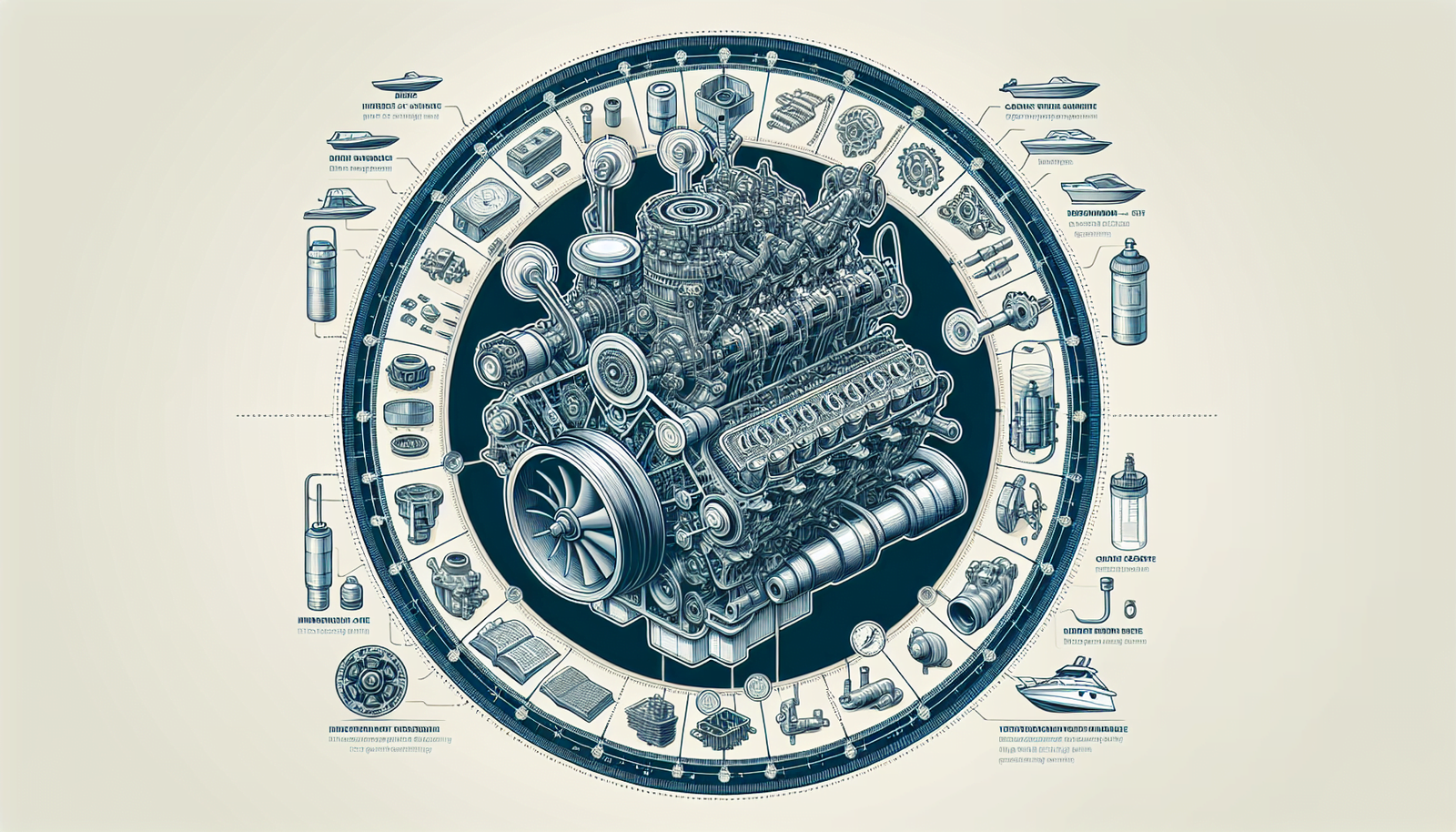Off for a calm sail or a thrilling powerboat ride, and suddenly you’re caught up with an overheating boat engine! Not exactly the idyllic boat day you envisioned, is it? This article seeks to shed light on your vexing issue – explaining why your boat engine might be overheating. It pays to know the potential cause, as this predicament can cause expeditions to cut short, not to mention, serious damage to your beloved boat’s engine. Take a seat, dear reader, and allow this article to help decode the mystery of an overheating boat engine. The wind may be chaotic today, but your boat engine doesn’t have to be!

Understanding Boat Engine Overheating
Just like any other engine, your boat’s engine can overheat due to a variety of reasons. Understanding what overheating includes, knowing the signs, and realizing the possible negative impacts are the first steps in diagnosing and fixing the problem.
Definition of Overheating
Overheating occurs when the temperature of your boat’s engine exceeds the normal operating range, usually caused by inadequate cooling. When heat is insufficiently dispersed from the engine, it could lead to severe engine damage.
Signs Your Boat Engine is Overheating
You can tell if your boat engine is overheating by keeping an eye out for certain warning signs. This could include a higher than usual temperature gauge reading, loss of power, or steam coming from the engine compartment.
Negative Impacts of Overheating on the Boat Engine
Overheating can lead to severe engine damage on your boat. This damage can be costly and time-consuming to repair and can reduce your boat’s overall lifespan and efficiency.
Mechanical Issues Causing Boat Engine Overheating
A variety of mechanical issues can cause overheating including a faulty water pump, clogged cooling system, radiator failure, blown head gasket, and a blocked exhaust system.
Faulty Water Pump
A faulty water pump can prevent the coolant from circulating correctly through your boat engine, causing it to overheat.
Clogged Cooling System
If your cooling system is clogged, the coolant may not be able to flow appropriately, causing excessive heat.
Radiator Failure
The radiator plays an essential role in cooling your boat’s engine. If it fails, the engine can overheat rapidly.
Blown Head Gasket
A blown head gasket can cause your boat’s engine to overheat by allowing coolant to mix with engine oil, which hampers the cooling process.
Blocked Exhaust System
A blocked exhaust system doesn’t let the engine dispel heat efficiently which can cause overheating.
Environmental Factors Leading to Overheating
Certain environmental factors such as ocean temperature, high altitude operation, and running the engine at high speeds for extended periods can lead to overheating.
Ocean Temperature
The temperature of the seawater can play a role in your boat engine’s overheating, especially when it’s warm and your overarching cooling system is not functioning optimally.
High Altitude Operation
Operating your boat in high altitudes can affect the performance of your cooling system and contribute to engine overheating.
Running the Boat Engine at High Speeds for Extended Periods
Running your boat engine at high speeds for a prolonged period can generate more heat than the cooling system can handle, leading to overheating.

The Role of the Cooling System in Preventing Overheating
Your boat’s cooling system plays a crucial role in preventing overheating by managing and expelling excessive engine heat.
Understanding the Function of the Cooling System
The cooling system circulates coolant around the engine, absorbing unwanted heat and transferring it to the environment.
Types of Marine Cooling Systems
Marine cooling systems can be divided into two broad categories: closed cooling systems and raw water cooling systems. Each type has its own benefits and drawbacks.
Risks Associated with an Inefficient Cooling System
An inefficient cooling system can result in frequent overheating episodes, which could negatively affect your engine’s lifespan and overall performance.
Common Cooling System Problems
Common problems affecting the cooling system include coolant leaks, failed thermostats, radiator hose issues, insufficient coolant levels, and corrosion within the system.
Coolant Leak
A coolant leak can lead to low coolant level, which can cause overheating.
Failed Thermostat
A failed thermostat can prevent the correct regulation of coolant flow, causing the engine to overheat.
Radiator Hose Issues
Problems with the radiator hose, such as leaks or blockages, can hinder coolant flow and lead to overheating.
Insufficient Coolant Level
If there isn’t enough coolant in the system, it will not be able to remove heat effectively from the engine.
Corrosion in the Cooling System
Corrosion within the cooling system can cause blockages and leaks, preventing optimal operation of the cooling system.
Preventing Overheating through Proper Maintenance
Proper and regular maintenance can help prevent your boat’s engine from overheating. It includes routine inspection of the cooling system, cleaning and flushing the cooling system, making proper use of coolant, and regular oil changes.
Routine Inspection of the Cooling System
Regular inspections of the cooling system, including checking for leaks, blockages, corrosion, and coolant level, can help keep your boat’s engine within the correct temperature range.
Cleaning and Flashing the Cooling System
Regular cleaning and flushing of the cooling system can help prevent blockages and buildup that can result in overheating.
Proper Use of Coolant
Using the correct type and amount of coolant can help maintain your engine’s temperature within the proper operating range.
Regular Oil Change
Regular oil changes can help keep your boat’s engine running smoothly and reduce the likelihood of overheating.
Troubleshooting Overheating Issues
When your boat’s engine overheats, the first step is to identify the signs of overheating, then investigate the cooling system, check mechanical components, and review environmental factors.
Identifying Signs of Overheating
Look for common signs of overheating like steam, an elevated temperature gauge, or reduced engine power.
Investigating the Cooling System
Check the cooling system for leaks, blockages, sufficient coolant levels, and ensure all components are functioning correctly.
Checking Mechanical Components
Inspect mechanical elements, like the water pump, radiator, head gasket, and the exhaust system, for any faults or damage.
Reviewing Environmental Factors
Take into account environmental influences such as seawater temperature, altitude, and how long you’ve been running your engine at high speeds.
Professional Assistance and Repair Options
In some cases, you might need professional help. Knowing when to seek help, what to expect from a professional inspection, the cost of common repairs, and understanding the importance of timely repairs can go a long way.
When to Seek Professional Help
If you’ve tried troubleshooting but can’t identify the issue, or the problems persist, seeking professional assistance is advised.
What to Expect from a Professional Inspection
During a professional inspection, mechanics will thoroughly examine your boat engine and cooling system to determine the cause of the overheating.
Cost of Common Repairs
The cost of repairs will vary greatly depending on the depth of the problem. It could range from reasonably low for small parts replacement to steep for more comprehensive repairs like a head gasket replacement.
The Importance of Timely Repairs
Promptly addressing overheating issues can prevent further damages, save you money and time in the long run, and ensure your boat’s optimal performance.
Upgrading Your Cooling System
Investing in an upgraded cooling system can be beneficial. Consider your boat’s requirements, usage, and your budget when making your decision.
Benefits of an Upgraded Cooling System
An upgraded cooling system can offer better performance, efficiency, and longevity. It may also tolerate harsher conditions and extend the life of your boat engine.
Considerations for Upgrading
When considering an upgrade, take into account the type of boat, its age, general condition, and how you use it. Also, consider the cost and potential return on investment.
Best Cooling Systems for Boat Engines
There isn’t a one-size-fits-all answer here as the best system for you depends on your boat’s specific requirements. However, a high-quality, well-maintained system with upgraded components can go a long way in preventing overheating.
Overall Impact of Overheating on Your Boat’s Performance
A consistently overheating engine can severely impact your boat’s overall performance. Impacts can be seen on reduced engine lifespan, poor fuel efficiency, overall performance, and potential safety risks.
Reduced Engine Lifespan
Constant overheating can damage your boat’s engine, leading to a significant decrease in its lifespan.
Poor Fuel Efficiency
An overheating engine works harder and burns more fuel, leading to poor fuel efficiency.
Overall Boat Performance Issues
Apart from engine damage, overheating can cause the boat to lose power or operate erratically, affecting the overall performance.
Potential Safety Risks
An overheating engine can pose safety risks, including potential fires and getting stranded in the water due to a broken-down engine.
In conclusion, managing and preventing overheating is crucial in maintaining your boat’s engine and overall performance. By understanding what causes overheating, you can take steps to prevent it and ensure your boat engine stays in great shape for years to come.


[…] your boat, you might have noticed an unusual shake, a strange hum, or even a sporadic jerk. “Why Is My Boat Engine Vibrating Excessively?” Is a question that might have crossed your mind. This jarring sensation isn’t just […]